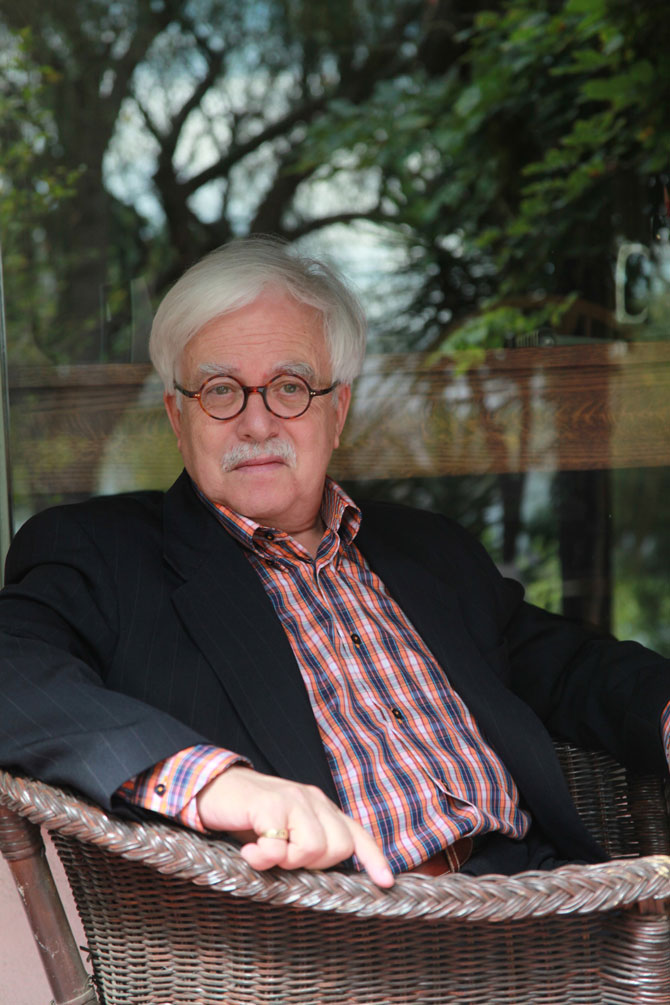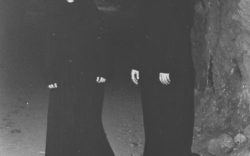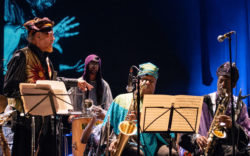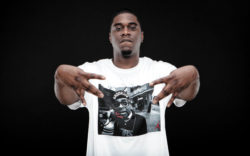The phenomenon of a touring act making it his or her business to make a beeline towards Athens on a yearly basis is nothing new. In the case of Van Dyke Parks, however, two appearances in as many years is significant given that the pop music polymath has only been touring since 2010. Parks’ lifetime in music staggers the mind. He’s had more than a mere hand in the musical accomplishments of artists ranging from Beach Boys, Randy Newman,and Tim Buckley to Joanna Newsom, the Scissor Sisters, and (believe it) Skrillex; the list spans decades between. He’s accrued an impressive solo catalog displaying his own idiosyncratic vision of pan-American pop since the release in 1968 of the much-lauded Song Cycle. Fairly recently, Parks cut the ribbon of his own record label, Bananastan, which has seen two tiers of output. On the macro level, Arrangements Vol. 1 has been pressed onto vinyl; the album is a collection of his early work as an arranger for Little Feat, Arlo Guthrie, as well as his own written material. Additionally, Parks has been releasing a series of seven-inch singles, available individually or via subscription, which have been adorned by visual artists such as Art Speigelman (Maus). His tours to support these releases have, as mentioned above, brought him to Athens yet again; anyone with an even cursory interest in important music should make it their business to be present. Flagpole had the honor of speaking with this living legend from his home in Pasadena, California; beyond his myriad accomplishments, Parks is one of those rare individuals who can genuinely be called both a gentleman and a scholar.
Flagpole: What was the experience of revisiting your arrangement catalog while assembling Arrangements, Vol. 1 like?
Van Dyke Parks: It was like going to a whole bunch of offices of attorneys who are protecting the record business, that have kept the works ignominiously in their vaults for decades. And dealing with those attorneys to try to get permission to release those works, that might see them available to the public during my lifetime. Is that a good answer?
FP: It relates to another question I have, which is: Now that you are running your own record label, if that’s something you enjoy, or is it more of a necessity in this day and age?
VDP: Well it’s certainly a necessity if I want to record, because I have not gotten any phone calls from any patrons. The record business that I knew has collapsed. I think that it was by its own misdeeds. A lot of people like to think that it was the Internet and the general relaxations of ethics, of the standards of piracy that dominate. But I think it was actually just a bunch of artists got disgusted with the mountains of papers, the contracts that were built to deceive. I think people finally got wise to the idea that the record business was predatory, and they wanted to escape it. So they created a new kind of an industry, which is more self-supporting. And it’s into that industry that I decided to go with my mom & pop shop.
FP: OK. Legal wrangling aside…
VDP: “OK?” Is that all I get for my honesty, “OK?” [laughs] Honesty is priceless. The fact is, yes, I decided I didn’t need a label to get publicized. I decided to go ahead and put out my own works, support the expense of recording by going on the road—which is the last avenue for any performing or any recording musician now—so quite frankly, it’s a new world. I just started it last year. And it’s a better world; I like it.

Van Dyke Parks
FP: I do appreciate your honesty! Steering away from the sometimes unsavory world of the business side, I was wondering what the process was like listening back to older material. What guided your selections?
VDP: Well you know, I decided to start with an instrumental [“Donovan’s Colours,†an instrumental take on the song “Colours†by folksinger Donovan] because it’s like a flash, I felt that it was fancy to give the album something of an overture; in this case, an “underture.†But definitely a piece of work that I think has some durability. I think it’s durable; I think that it’s durable because the tune survived the arrangement. It’s a very beautiful song. And I listed it for its simplicity and clarity and pure heart. Donovan wasn’t popular for his efforts, really; he was defiled by critics who accused him of being a Dylan wannabe. The Dylan wannabes—there were some, of course; more emerged as the years went by and people gained respect for what Bob Dylan was doing. He was showing folk poetic force without a great voice. I felt sorry for Donovan, that’s why I recorded his tune. I felt that the fellow was being treated poorly. And I listened to this tune and felt it would only make sense for me to start this album of arrangements with that, my first recording for Warner [Brothers], where I spent most of my brunette years as an arranger and artist. Everything else fell into place in a kind of timeline, in sequence, pretty much so. The exception being the Moog synthesizer work that I did in 1967. But these artists, I respected them, and I served them gladly because of why they were, nice people. Every one of them, I liked working with on all of these arrangements. I think that they showed enough variety, they showed how I was growing as an arranger, and I thought it was a good way to begin the album. I think my only potential hazardous equation that was introduced into it was that I called it Volume 1.. I called it Volume 1 only with the hope I might recover the expenses of pressing it and paying for the rights and be able to do Volume 2 which I think will also have a kind of a timeline to it and show that my ability improved with my opportunity.
FP: Given that arc that you’re describing, from your perspective, how did you learn? What about arrangement changed for you as time went on as you continued to work with a wider variety of musicians?
VDP: It’s so multifaceted. There’s so many facets to that; that’s a great question, there’s so many ways to answer it. I just gotta tell you that I think my overall intention, in arranging, is to try to give a framework to the process. You start generally with a vocal and an instrument, or a vocal and a rhythm track, and then you add stuff to that. What you add either coagulates like a hollandaise sauce… or it adds something that is unseen and yet supportive. The philosophy, if I can use the word, of an arranger, as I see it, is to capture the heat of the street—to capture that beat, that urgency of a street sensibility—and take it up into the parlor where people could care less about humanity that lies beyond the parlor. So it’s to keep kind of a root sensibility and yet make it a pill that’s not so bitter. In the case of Ry Cooder’s piece “How Can a Poor Man Stand Such Times and Live,” I took a string orchestra and basically amplified what he was doing on guitar with an acoustic room full of musicians. And I think that that’s a good example of the kind of work I wanted to do with everyone beyond, to try to give the artist more definition and clarity. As long as it doesn’t castrate, geld the life force that’s in each track.
FP: In previous interviews, you’ve said that hard work and willpower figure very heavily into your creative process. Given the labyrinthine and often frustrating nature of the creative process, how does one get a sense for whether they’re on the right track or not?
VDP: [laughs] I’d like to say that I know…people don’t share professional secrets, they’re very proprietary about them. But my secret is this: that I find comfort in not knowing where the process is going to take me. That’s the most valuable way to go about an arrangement; to first, of course, to be all ears. To listen to what’s there, to be aware of what’s there. I write down every note that will appear. Everything gets written down, and the first thought of arranging is reacting. And you’d be surprised how creative people think you are if you’ll just do that, if you’ll be observant. And that’s what I do. Now I don’t have any idea where that will take me. That is constantly writing yourself out of a corner, as it were. Painting yourself into a corner, finding a way to escape, to paint yourself into another corner. Everything seems to require a solution to the last thing that you did. The whole process is still a sense of crisis: absolutely not knowing where you’re going. You must follow the process, as it were, and be willing—it’s very uncomfortable, actually.
FP: You’re talking about reacting, which brings us to another quote from an LA Times interview where you said: “My motives are not at all musical, they’re social.” Can you expand on that thought?
VDP: I love music, but music is here to serve humanity. Music is here, certainly in song—the song is to serve the singer. And the singer is here to serve those around him or her. To me, this is all a matter of a social order. The song, to me, is absolutely sociopolitical. That’s what it is, that’s where I come from anyway. That’s what I’ve always loved; that’s what I love about roots music. I like songs that reveal the human condition, in all its imperfection. It has nothing to do with an academic blanket approach for wanting to be in arts and crafts; I don’t think there’s anything appealing about decorative music. I think music should [be] absolutely urgent, however veiled that might be, however pretty it might sound. I still think that music is here to help agitate, as well as console. And that’s why I’ve said it’s a social obligation rather than a musical fascination that brings me to music. If I want to get interested in music, then I listen to Bach. I listen to a lot of dead white guys; I have great respect for a lot of dead white guys, as much as in world beat music today. So if I have time to think about music, I’ll listen to others. There is a lot that I love. But it’s something else that drew me to it. It was a sense that music could do something, and pop music was by definition of that. It was a populist thing. [In ’63], that was the year that “The Freewheelin’ Bob Dylan†came out that year. The first album of the Rolling Stones came out that year. Music changed its focus. It wasn’t here just for last call for alcohol. It wasn’t just decorative backdrop. There were other things to think about, and I came into music when music had a political sensibility. Social obligation, the song form. And it had a social potential, to change things. You look at songs like “We Shall Overcome.” Look at artists, songwriters like Phil Ochs, and you see what primary influences were around me in my lettuce years. And I haven’t lost that, I haven’t lost that interest in music. My approach to music is pretty much the same.
FP: I noticed that in your decision to release the “Money is King” and “Wall Street” single. I have to guess that you chose to cover that song, “Money is King” [originally by Trinidadian vocalist/boxer Growling Tiger] at a very timely moment.
VDP: Yes, I think that now that it’s safe to say rock music has infected the world, it can’t offer the rebellion that it once gave to Europe. You see, rock has infected the world, the rock culture. But it is a first world culture, and there is more than the first world to think about. I think that…these self-congratulatory organization that surround showbiz, music, and the arts, are missing a lot in neglecting those beyond the first world. “Money is King” raises questions about breed. I think that the discrepancy between the rich and the poor is one of the things that absolutely obsesses me, I can’t get rid of it. Recently, thinking about, if we could, about Vic Chesnutt, for example. Vic Chesnutt, you know about him, don’t you?
FP: Certainly.
VDP: Vic Chesnutt died because he couldn’t afford to stay alive. The reason that he couldn’t afford to stay alive is because he lived in the only country in the world—industrialized country—that does not offer universal health care. Vic Chesnutt could not afford his medications. So I think that there is a big problem here between the 99 percent and the 1 percent. And I don’t think that it’s an objective thought which deserves a buzz in the news cycle and then goes away. I think it will continue to plague us, but in more pronounced ways. I thought “Money is King” deserved a place in my efforts, so I spent the money to get those musicians to play it. I was very, very honored that Inara George came and sang it with me, Lowell George’s daughter. And “Wall Street,” the song itself, isn’t so much of the bravado and braggadocio and retaliation that Neil Young offered when he said “Let’s roll.” There is nothing about my song that suggest retaliation or retribution. What that song tries to do is admit to a sense of wonder: I wonder what we did that was so horrible that it incited such hatred. What were we doing? We, Americans, us capitalists does, what we were doing that incited such hatred. I thought it was time to pause and try to think about that. And so that’s why I included that song in my short series.
Like what you just read? Support Flagpole by making a donation today. Every dollar you give helps fund our ongoing mission to provide Athens with quality, independent journalism.










